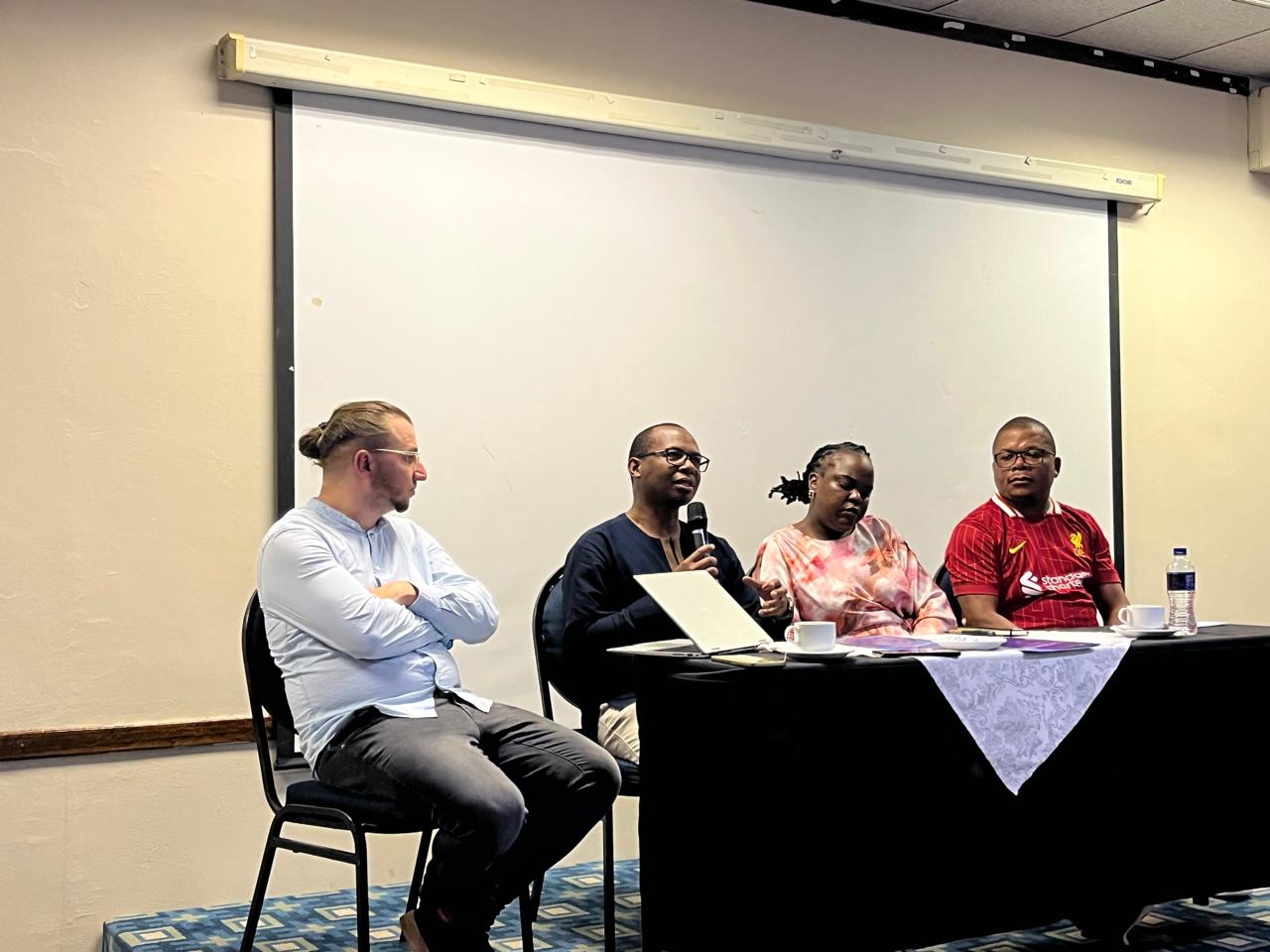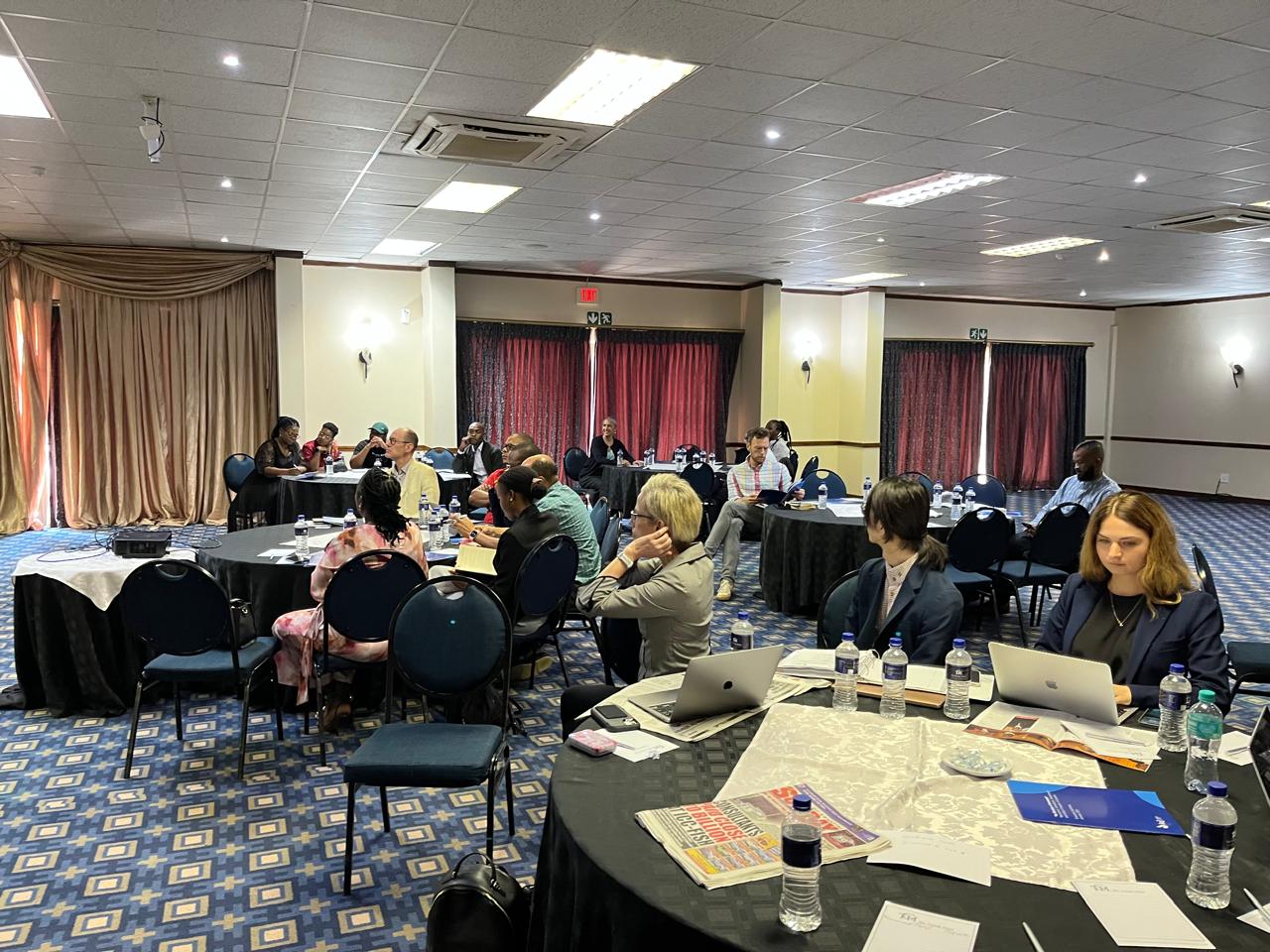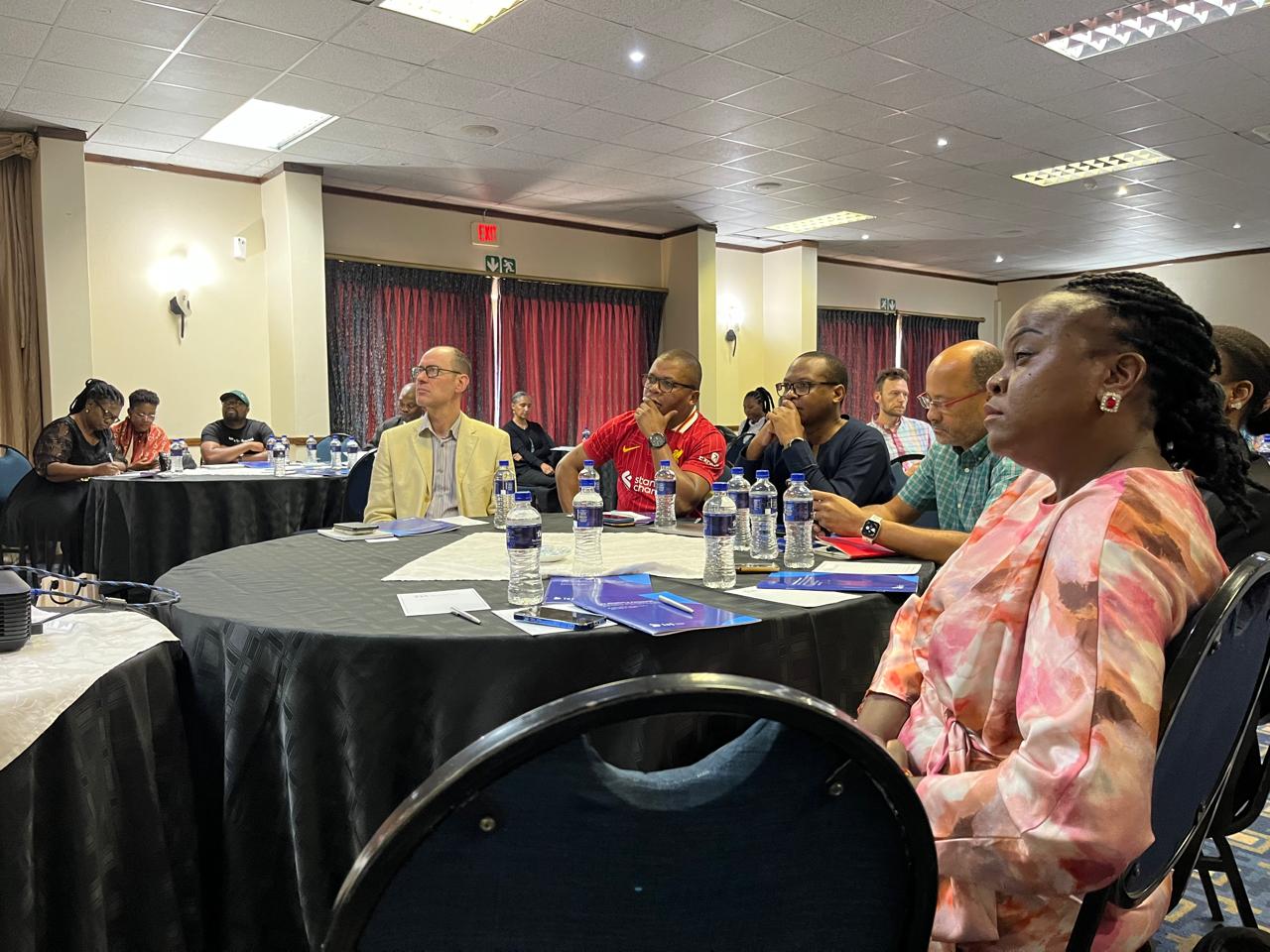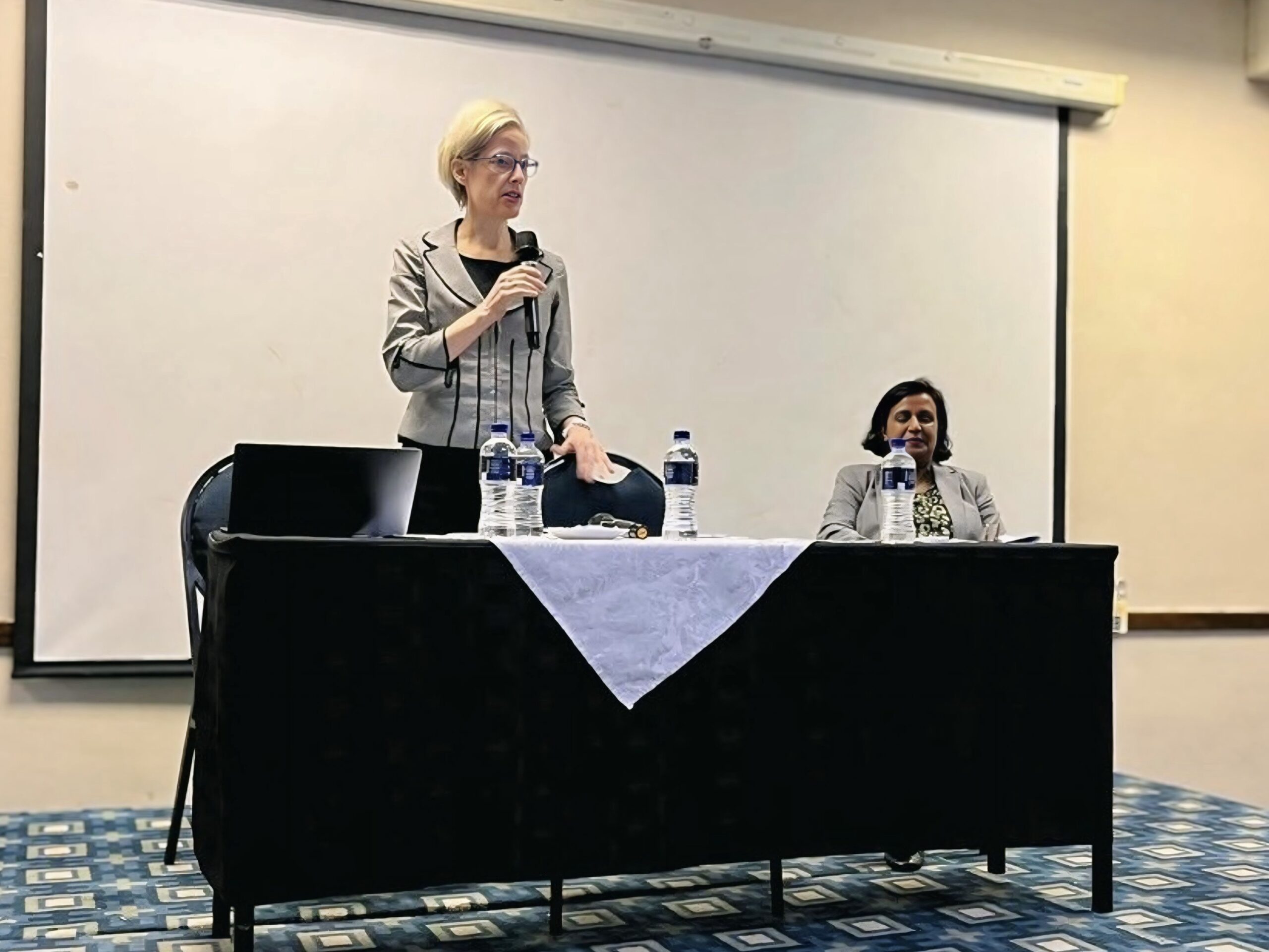The Special Rapporteur on the Independence of Judges and Lawyers emphasized the fundamental importance of the independence of judges and lawyers in the protection of human rights and the rule of law.
In a social media post issued on 13 April 2025 after meeting Eswatini lawyers in Manzini, Margaret Satterthwaite, the UN Special Rapporteur on the Independence of Judges and Lawyers, noted that:
“Lawyers continue their work in the face of fear, especially after the killing of Thulani Maseko in 2023. I share their concerns about the independence of judges and lawyers in the country and will be carefully monitoring the situation. Lawyers must be free to work without intimidation, threats, or attacks.”
The International Commission of Jurists (ICJ) and the Centre for Human Rights at the University of Pretoria co-hosted the meeting to follow up on the February 2025 ICJ’s report “No Situation is Permanent” – Repression, Intimidation, Harassment and Killing of Lawyers in Eswatini.
At the meeting, the Special Rapporteur told the lawyers that she had already issued a communication to the Eswatini authorities, reiterating the concerns that her office had received over the past two years, and was awaiting a reply.
Lawyers present at the meeting expressed their disappointment at the non-attendance of representatives of the Council of the Law Society of Eswatini. In the run-up to the publication of the ICJ’s report, the President of the Law Society of Eswatini, Mr. Mangaliso Magagula, wrote a letter to the ICJ indicating that:
“Lawyers in the country carry out their functions free from intimidation, harassment, reprisals and other human rights violations. Lawyers operate independently and are able to determine which cases to take and which clients to represent.”
Concerning this, Kaajal Ramjathan-Keogh, ICJ Africa’s Director, commented that:
“It is difficult to square the President of the Law Society’s stated views with information provided to ICJ over many years.”
“The Law Society has a mandate to serve and protect all lawyers, including human rights lawyers, and uphold the rule of law. A strong and independent Law Society is critical to the protection of the independence of judges and lawyers in Eswatini”, she added.
Lawyers and other human rights defenders present at the meeting with the Special Rapporteur also raised concerns about the failure of key institutions, such as the Eswatini Commission on Human Rights and Public Administration, the Police, and other authorities to fully respond to the assassination of Thulani Maseko, a human rights lawyer, in 2025.
“It’s painful to be a Swazi in Swaziland. It seems that no progress has been made in investigating Thulani’s assassination in over two years since his brutal killing. Instead, not only have I been insulted and harassed by authorities, but human rights lawyers continue to operate in constant fear”, said Tanele Maseko, Executive Director of the Thulani Maseko Foundation.
Furthermore, the discussion between lawyers and the Special Rapporteur highlighted some challenges relating to the independence of the judiciary, including that:
- For over a year, Eswatini has not had a Judicial Service Commission.
- The process for appointing acting judges, a practice which is commonplace in Eswatini, is not accompanied by adequate safeguards to ensure judicial independence.
- Despite a complaint laid against Chief Justice Bheki Maphalala by the Law Society in December 2022, no progress appears to have been made in conducting a full and independent investigation, as mandated by the Eswatini Constitution.
For more information
[Executive Summary] An executive summary of the report is available here.
[Full Report] The full report is available here.
[ICJ Tribute to Thulani Maseko] ICJ Tribute by ICJ Africa Director Kaajal Ramjathan-Keogh, to Swazi Human Rights lawyer, Thulani Maseko, presented at commemoration of the second anniversary of his assassination, 23 January 2025, available here.
Background
The independence of judges and lawyers, as well as their accountability, is a core rule of law principle. The UN Human Rights Council, in repeated resolutions, most recently in 2023, has affirmed that such independence and accountability are “essential prerequisites for the protection of human rights and fundamental freedoms and the application of the rule of law”.
Regarding the independence of lawyers, the primary international standards are contained in the UN Basic Principles on the Role of Lawyers. They assert that “adequate protection of the human rights and fundamental freedoms to which all persons are entitled… requires that all persons have effective access to legal services provided by an independent legal profession”. Both the institutional independence of lawyers and their independence at an individual level must be guaranteed. In doing so, States must take measures to ensure that lawyers “are able to perform all of their professional functions without intimidation, hindrance, harassment or improper interference”.
The independence of judges and lawyers is also entrenched in the African Charter on Human and People’s Rights and in the jurisprudence of the African Commission on Human and People’s Rights. In the specific context of Eswatini, the African Commission has issued three decisions relevant to the independence of the judiciary, summarized in the ICJ’s February 2025 report. The Commission has also condemned the killing of Thulani Maseko, calling for an “independent inquiry”, and has cautioned that, “under no circumstances should intimidation, threats, actual violence or the killing of any activist, or human rights defender be ignored by State authorities.” It has also separately called on the Eswatini authorities to “ensure that there are prompt, transparent, effective, independent and impartial investigations into all allegations of human rights violations” relating to the June 2021 unrest, and to “withdraw all politically motivated charges and release all political prisoners, including”.
Eswatini’s Constitution provides that the judiciary “shall be independent and subject only to this Constitution and shall not be subject to the control or direction of any person or authority.” Despite this provision, ICJ has documented that deficiencies in the guarantees and exercise of judicial independence have been commonplace throughout Eswatini’s constitutional dispensation. The independence of the legal profession is safeguarded under the Legal Practitioners Act.







